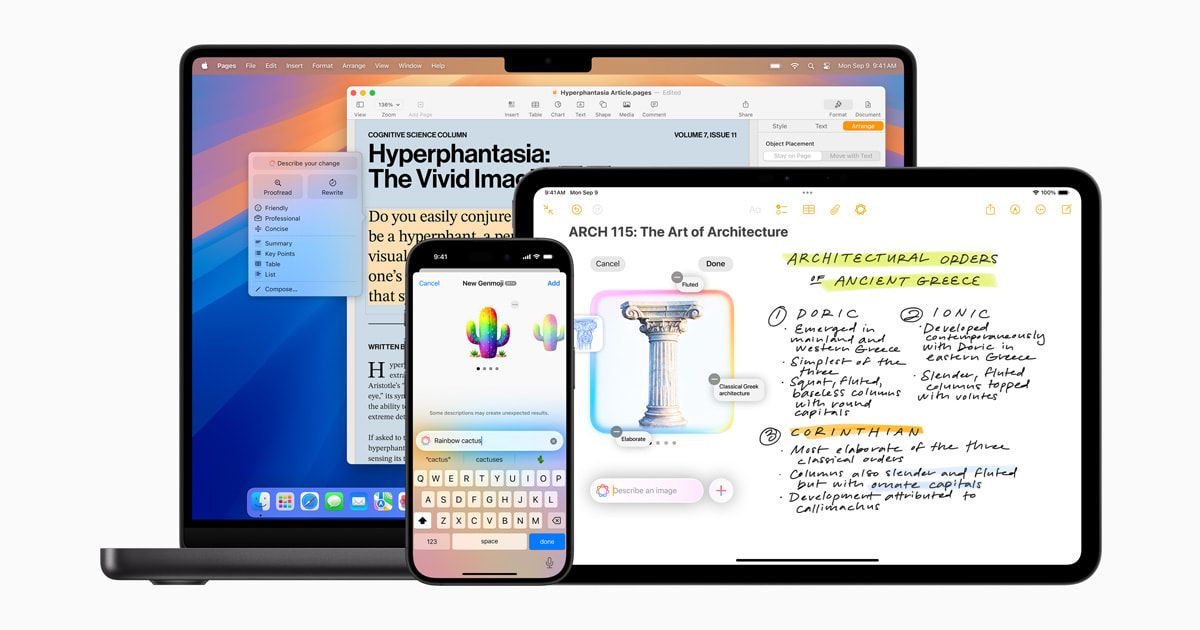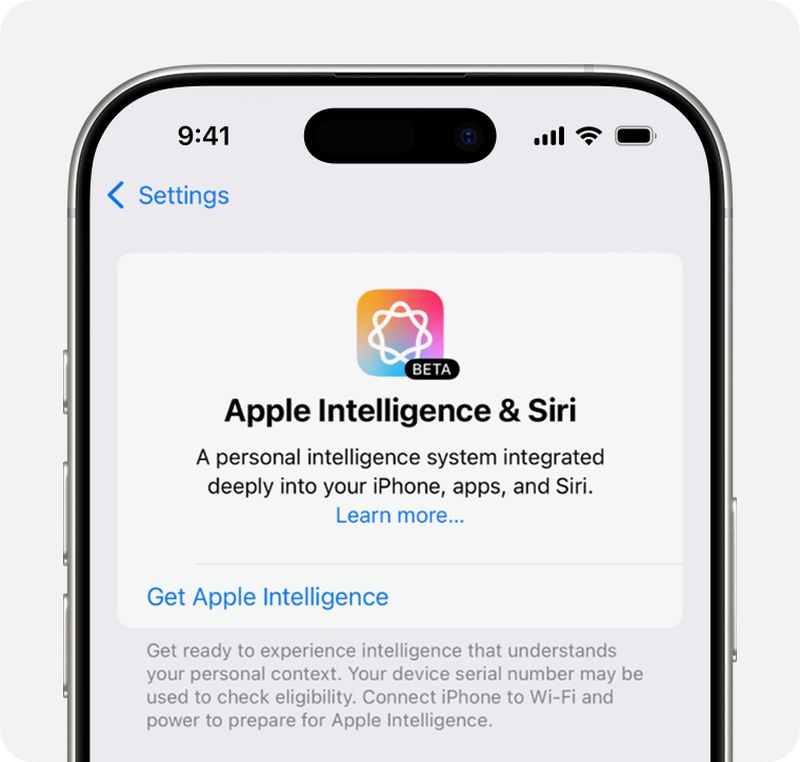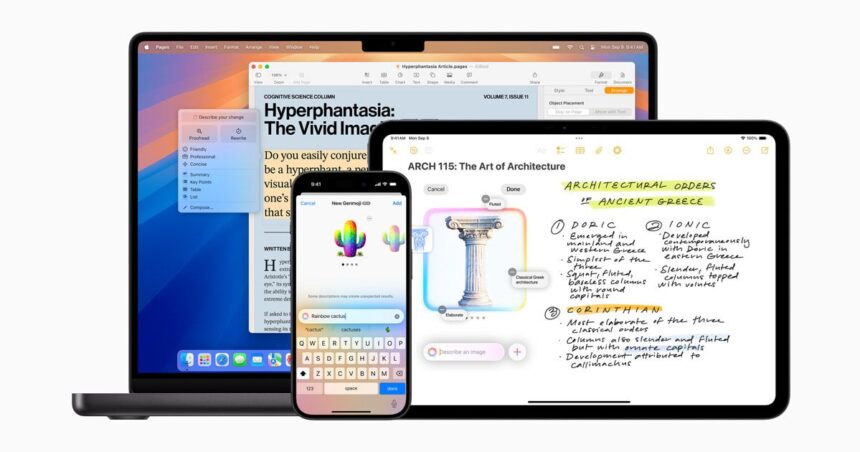
Apple Intelligence will be switched on by default starting with iOS 18.3, iPadOS 18.3, and macOS 15.3. The update will automatically enable AI-powered features for new users and those upgrading their operating systems.
Apple Intelligence to be enabled by default in iOS 18.3
This AI update applies to devices that support Apple Intelligence, including the iPhone 15 Pro and later, iPads, and Macs with the Apple Silicon M1 chip or later, as well as the most recent version of the iPad mini.
For users upgrading to macOS 18.3, Apple Intelligence will be activated automatically during the onboarding process. After setting up their devices, users can disable Apple Intelligence by navigating to the Apple Intelligence & Siri Settings pane and turning off the Apple Intelligence toggle, which will disable the related features.
Users must manually disable Apple Intelligence after updating their devices if they do not wish to utilize features such as AI notification summaries, Image Playground, and text rewriting tools. A recent update to iOS 18.3 beta has paused AI notification summaries for news and entertainment apps following inaccuracies in a summary of a BBC headline. Apple will enhance the identification of notification summaries on the iPhone’s lock screen and clarify that they “may contain errors.”
Apple suspends AI news notifications, it’s not ready yet
Apple has started distributing the iOS 18.3 update for eligible iPhones, marking a significant expansion of Apple Intelligence’s availability. Previously, users had to manually activate this feature, which could be challenging for less tech-savvy customers.
The rollout of Apple’s initial AI features, which includes notification summaries (currently paused due to reported errors), writing tools, Image Playground, ChatGPT-powered Siri, and Visual Intelligence, is nearly complete. The writing tools assist users in proofreading and rewriting text, while Image Playground allows users to generate custom images through simple text prompts. ChatGPT-Powered Siri enhances search results and aids in understanding complex topics. Visual Intelligence, an advanced tool akin to Google Lens, enables users to point their iPhone camera at subjects and ask related questions.
Apple Intelligence will be enabled by default for eligible iPads and Macs running their respective updates, iPadOS 18.3 and macOS 15.3. Notably, Visual Intelligence is exclusive to the iPhone 16 series, which features a dedicated camera control button.

A recent survey conducted by online smartphone marketplace SellCell reveals that Apple customers may not be as enthusiastic about Apple Intelligence as the company anticipated. Among over 1,000 iPhone owners with the latest hardware, only 41.6% expressed interest in trying the new features. Furthermore, of those who did, 73% found the tools to be “not very valuable” or adding “little to no value” to their smartphone experience, while only 11.1% deemed them valuable.
The dissatisfaction among users largely stems from the perception that the features do not provide significant innovation within the AI landscape. This sentiment may suggest a growing fatigue regarding AI technologies.
Concerns over the environmental impact of AI-related infrastructure, including contributions to electronic waste and significant water usage, are also emerging. Critics argue that investment in AI features that deliver minimal technical value to consumers exacerbates these environmental issues.
Despite Apple’s promotion of its Apple Intelligence features as substantial advancements enhancing user privacy and opportunities, there is a rising need to understand and combat potential greenwashing tactics. Awareness of the realities versus marketing claims is essential in navigating these narratives.
Currently, Apple faces substantial criticism and demands to remove its Apple Intelligence features following a notification in December 2024 that inaccurately summarized a BBC report regarding Luigi Mangione, the suspect on trial for the killing of UnitedHealthcare CEO Brian Thompson.
Featured image credit: Apple







